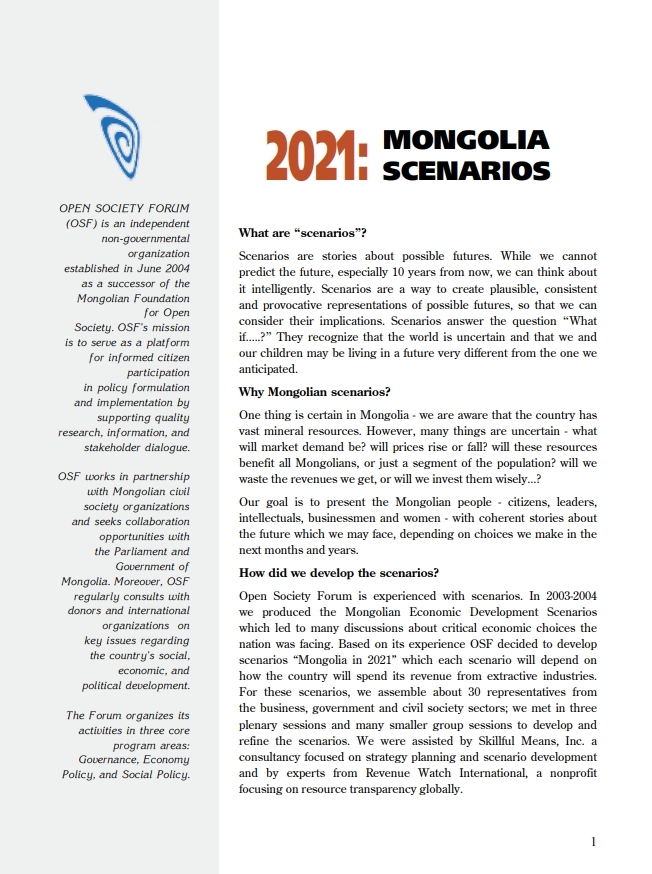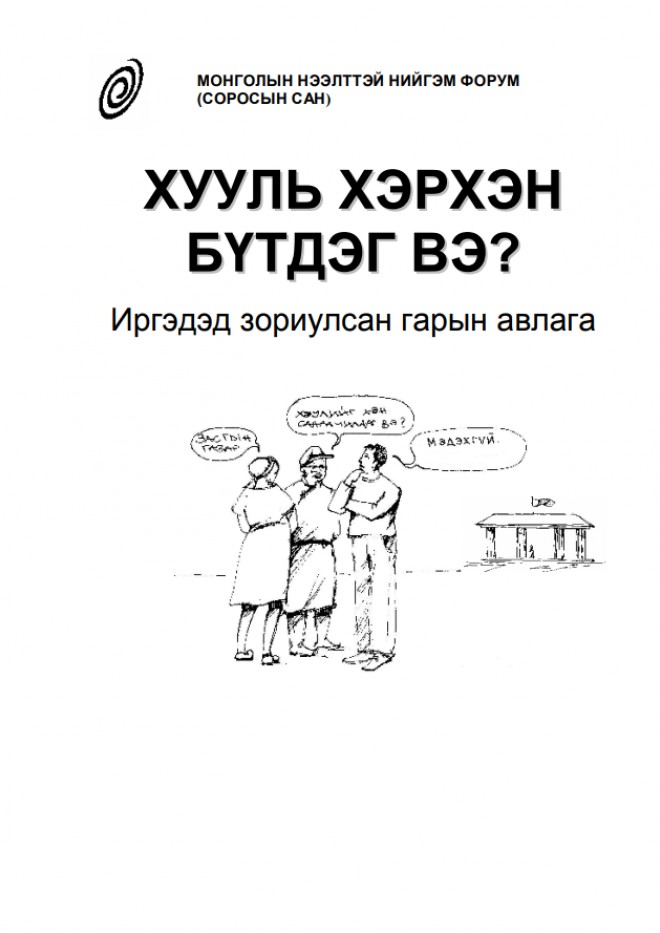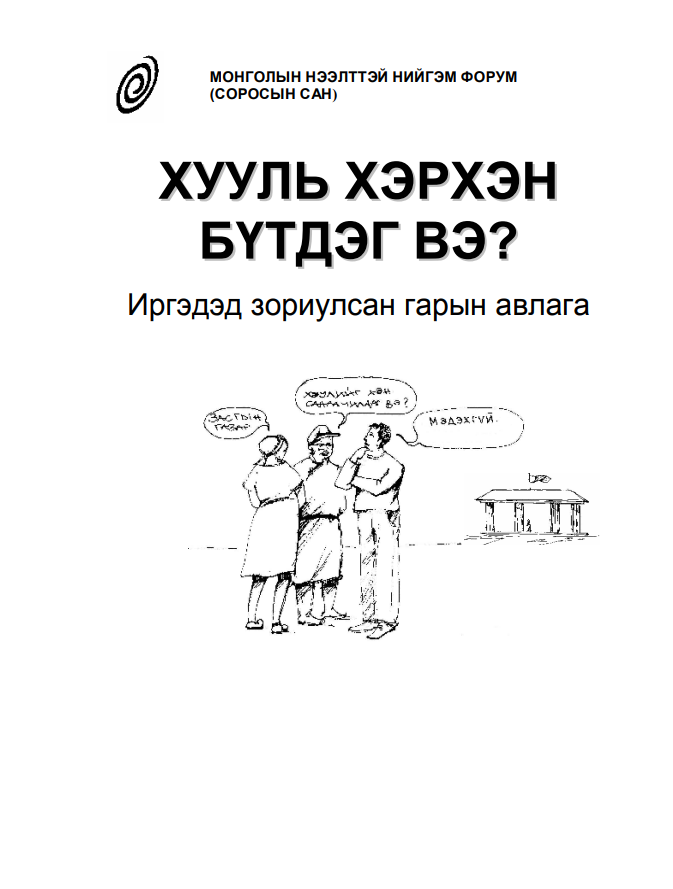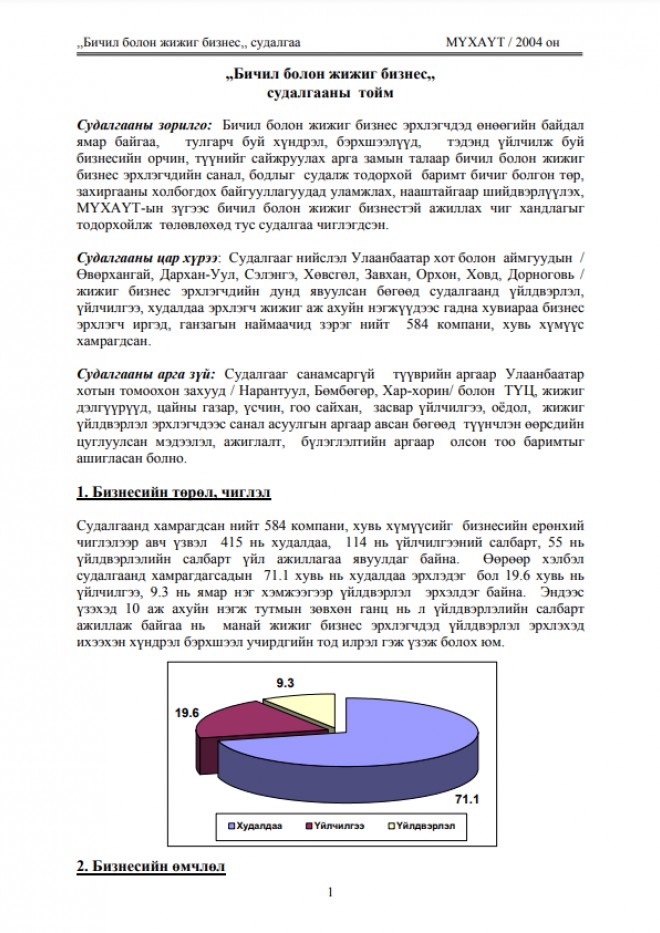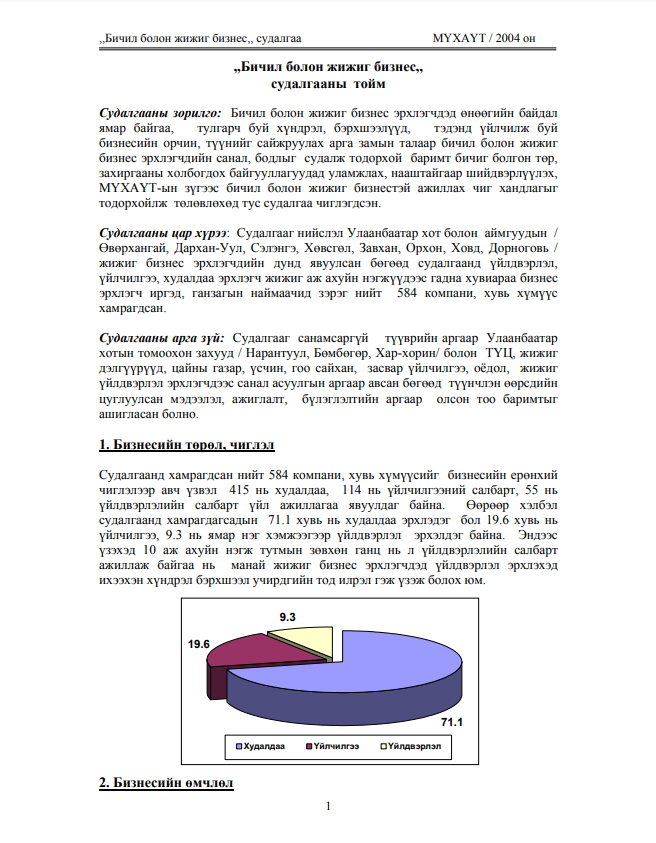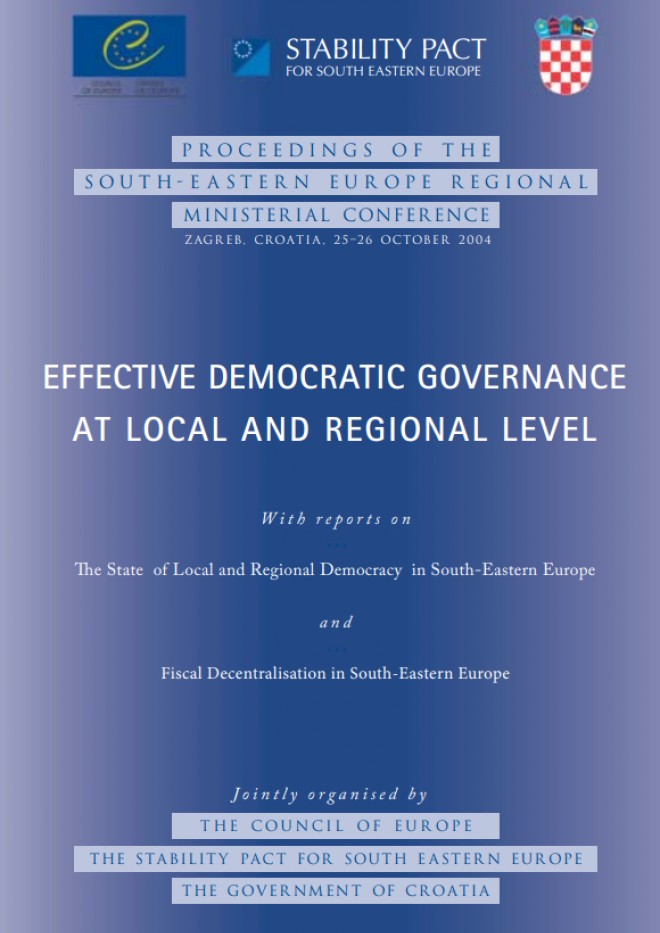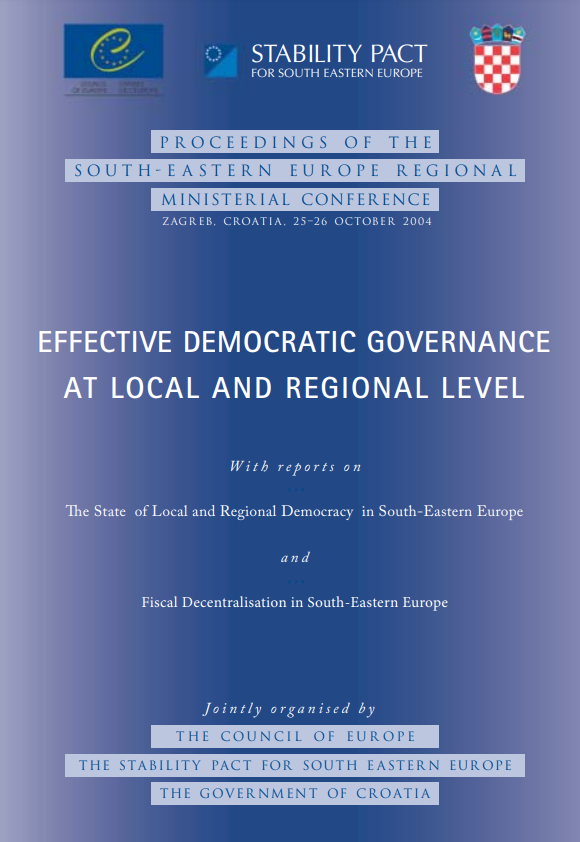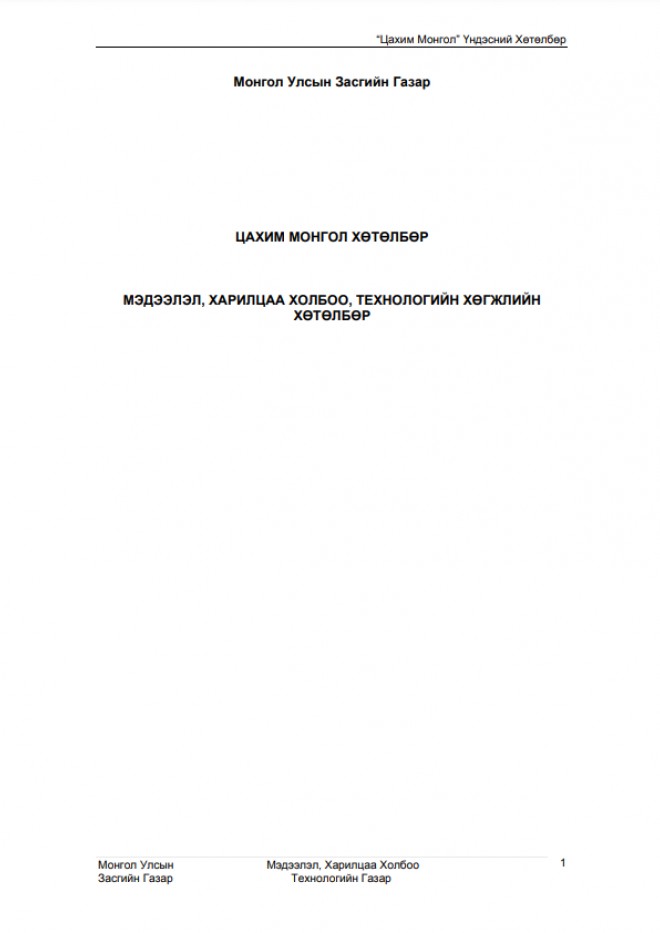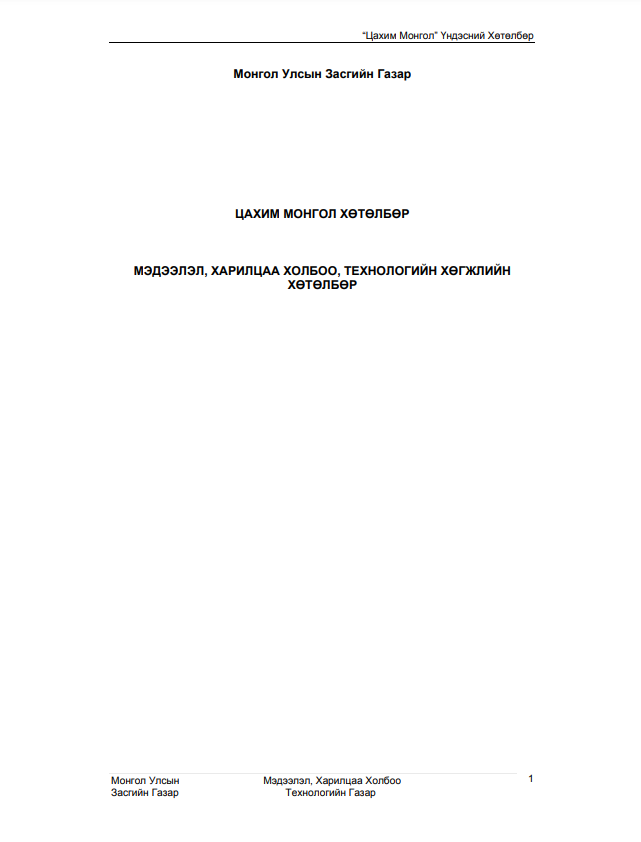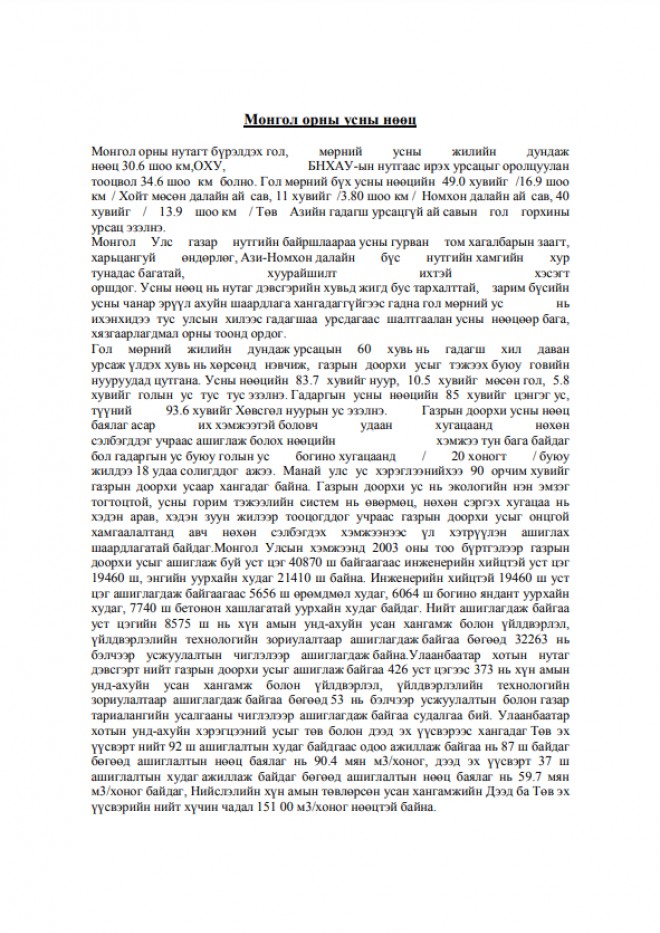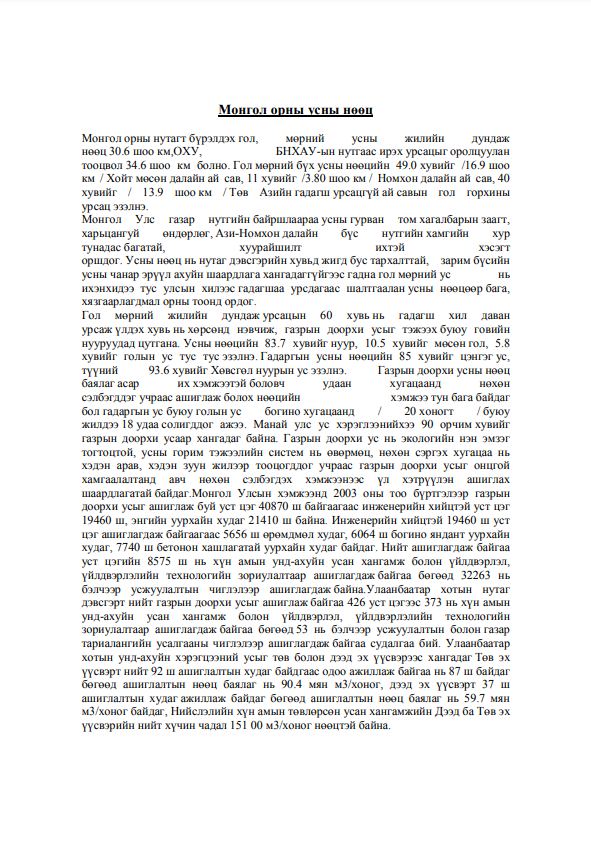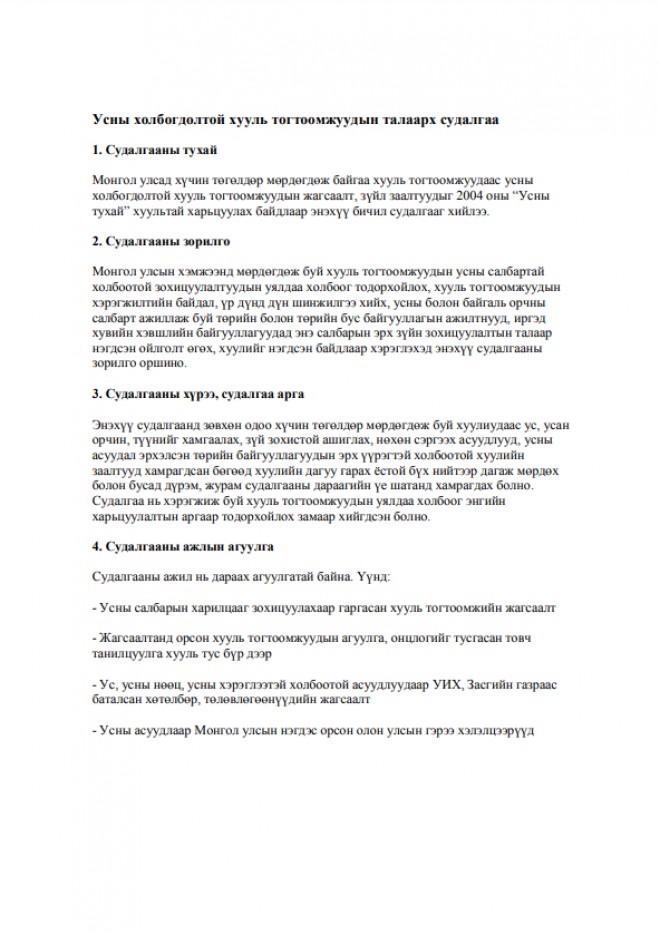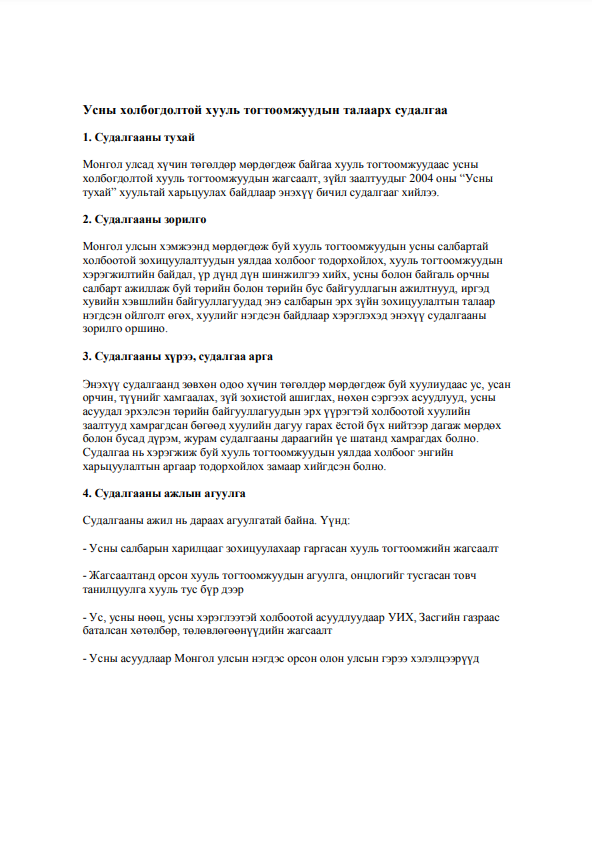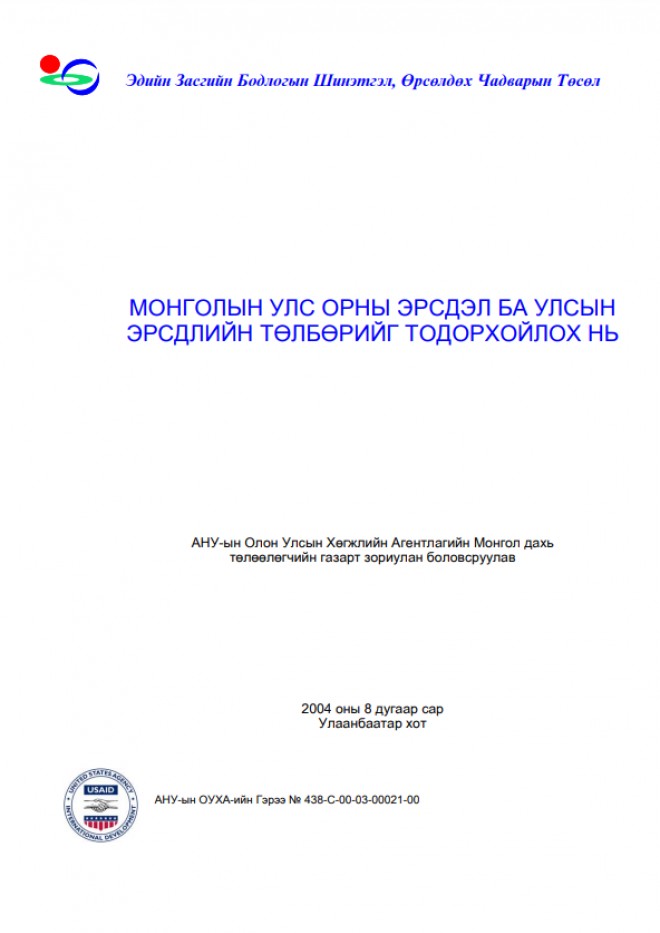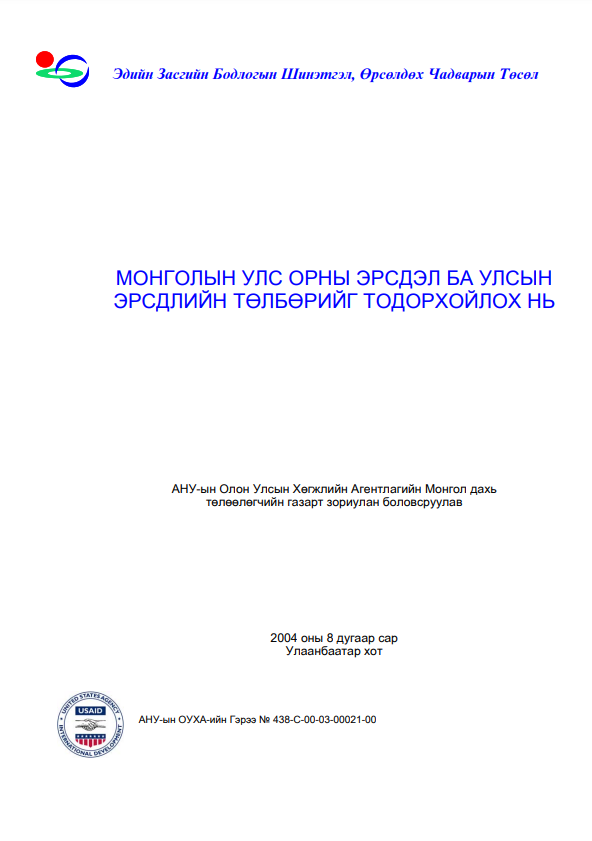Mongolia 2021: Scenarios
What are “scenarios”?
Scenarios are stories about possible futures. While we cannot predict the future, especially 10 years from now, we can think about it intelligently. Scenarios are a way to create plausible, consistent and provocative representations of possible futures, so that we can consider their implications. Scenarios answer the question “What if.....?” They recognize that the world is uncertain and that we and our children may be living in a future very different from the one we anticipated.
Why Mongolian scenarios?
One thing is certain in Mongolia - we are aware that the country has vast mineral resources. However, many things are uncertain - what will market demand be? will prices rise or fall? will these resources benefit all Mongolians, or just a segment of the population? will we waste the revenues we get, or will we invest them wisely...? Our goal is to present the Mongolian people - citizens, leaders, intellectuals, businessmen and women - with coherent stories about the future which we may face, depending on choices we make in the next months and years.
How did we develop the scenarios?
Open Society Forum is experienced with scenarios. In 2003-2004 we produced the Mongolian Economic Development Scenarios which led to many discussions about critical economic choices the nation was facing. Based on its experience OSF decided to develop scenarios “Mongolia in 2021” which each scenario will depend on how the country will spend its revenue from extractive industries. For these scenarios, we assemble about 30 representatives from the business, government and civil society sectors; we met in three plenary sessions and many smaller group sessions to develop and refine the scenarios. We were assisted by Skillful Means, Inc. a consultancy focused on strategy planning and scenario development and by experts from Revenue Watch International, a nonprofit focusing on resource transparency globally.
Scenarios are created from “driving forces”, critical factors which in some cases are relatively certain - population growth, for example - and in other cases are importantly uncertain -developments in neighboring countries, for example. We began by identifying the concerns of Mongolians about the management of our mineral resources and the management of the revenues which we expect. We then looked at various ways of distinguishing the scenarios from each other. We settled on an “axis” and three key questions which might lead to very different futures.
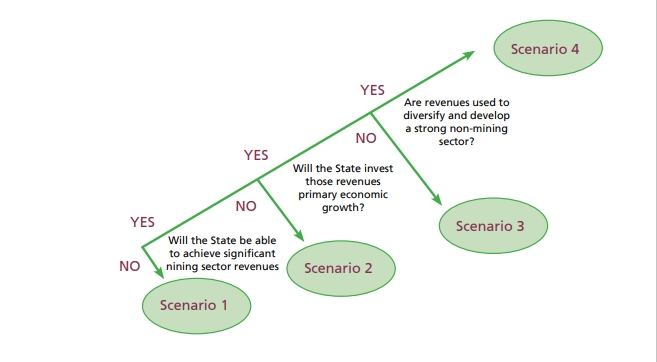
We also agreed on elements that would be addressed in each scenario - inflation, GDP, mining sector revenues, employment, exchange rates, etc. - and the characters—notably Zaya - in our scenario stories. Then we divided into four teams and started writing the scenarios. The scenarios are the story of Zaya and her friends and family, to show what might happen to ordinary Mongolians under each of the scenarios depending on how the country will spend its revenue from mining. In reading the scenarios, it is important to remember several things. Most importantly, the scenarios are not projections or predictions; we are not claiming that the future will in fact unfold precisely or even roughly along these lines. When reading the scenario, we ask that you consider only three questions: is the scenario plausible (might it happen, even if not exactly as the writers suggested)? Is the scenario coherent (does it reflect a sound internal logic)? Is the scenario provocative (does it make you think)?
Хэвлэн нийтэлсэн: Үндэсний Статистикийн Газар
Он: 2004
Файлын төрөл: pdf
Файл: /uploads/site/1126/res_mat/child_labor_mon.pdf
Түлхүүр үг: Монгол дахь хүүхдийн хөдөлмөр эрхлэлт, хүүхдийн хөдөлмөр, албан бус хөдөлмөр эрхлэлт, хөдөлмөр эрхэлж буй хүүхдийн боловсрол, Монголын хүүхдийн эдийн засгийн үйл ажиллагаа
“Нарантуул” ОУХТ-д худалдаа үйлчилгээ эрхэлж байгаа эмэгтэйчүүдийн хөдөлмөрийн нөхцөл
“Нарантуул” ОУХТ-д худалдаа үйлчилгээ эрхэлж байгаа эмэгтэйчүүдийн хөдөлмөрийн нөхцөл
Хэвлэн нийтэлсэн: Монголын Эмэгтэйчүүдийн Сан
Он: 2004
Файлын төрөл: pdf
Файл: /uploads/site/1126/res_mat/Report_Narantuul.pdf
Түлхүүр үг: эмэгтэйчүүдийн хөдөлмөр эрхлэлт, Монгол улсын албан бус сектор, албан бус хөдөлмөр эрхлэлт, амьжиргааны түвшин, хөдөлмөрийн орчин, Нарантуул худалдааны төвийн үйл ажиллагаа
Соёл урлагийн байгууллагуудын өөрчлөлт, шинэчлэлт, хувьчлалын хууль эрх зүйн орчин ба түүний хэрэгжилт хөдөө орон нутагт
Хэвлэн нийтэлсэн: Нээлттэй Нийгэм Форум
Он: 2004
Файлын төрөл: pdf
Файл: /uploads/site/1126/res_mat/Art_Culture_final_mong.pdf
Түлхүүр үг: Монголын соёл урлагийн байгууллагын хувьчлал, соёл урлагийг хөгжүүлэх бодлого, Монголын соёл урлагийн салбар, соёлын тухай монгол улсын хууль, хөдөө орон нутаг дахь соёл урлагийн байгууллага, Монгол улсын соёл урлагийн хөгжил, нийгмийн салбарын хувьчлал



